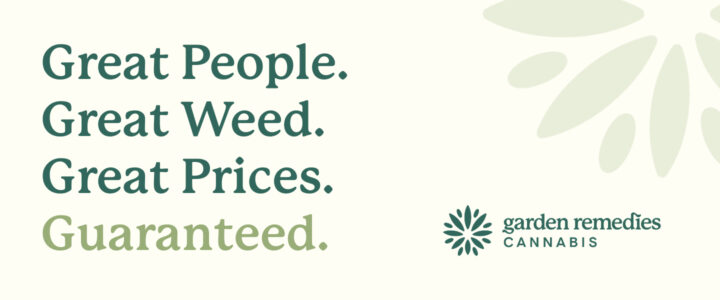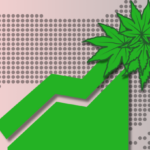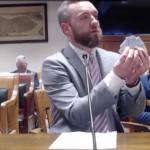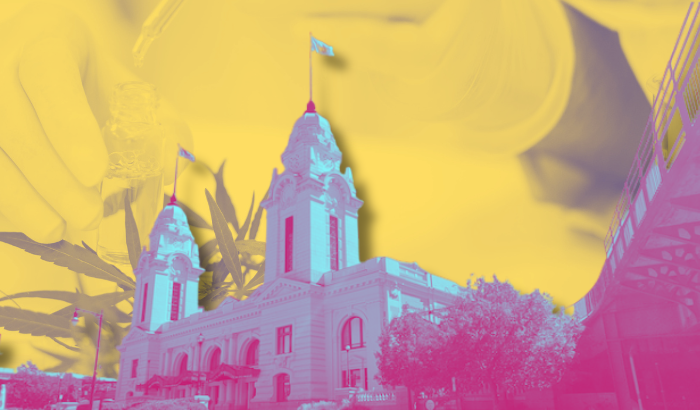
The first large-scale effort to poll cannabis users, including about who they’re supporting for president and why
With cannabis, there is no intellectually consistent way to separate politics from everything else. The plant was criminalized nearly a century ago, with the Uniform State Narcotic Drug Act, and then again in 1970, with the passage of the Controlled Substances Act.
These were political decisions made for political reasons, and many political actors of past generations built up vast amounts of political capital by embracing cannabis prohibition. Cannabis always has been, is, and always will be a political issue.
Today, cannabis legalization polls extraordinarily well among the general public, and politicians are quite predictably endorsing pro-cannabis policies to varying degrees. These, too, are political decisions made for political reasons, and many political actors of this generation are building up vast amounts of political capital by embracing cannabis legalization. Public support for cannabis legalization is driving the evolving views elected officials have on drug policy, and that support has grown generally along the same plane as cannabis use among one important political constituency: likely and committed voters.
This is why it makes sense, as the weight of another existential election bears down on the United States public, to look at cannabis users as a voting bloc. More than 35m voting-age people use cannabis on a weekly basis in the U.S., and growth is fairly consistent across all demographics.
We recently undertook the first large-scale effort to poll cannabis users who are likely or committed voters about their political preferences and expectations, including who they’re supporting for president this November and why. The poll’s results offer a nuanced view into cannabis consumers as voters and defy a few stereotypes as well.
For instance, this voting bloc is not dominated by progressive Democrats. While the poll does show President Biden ahead of the presumptive Republican nominee, Donald Trump, the advantage falls within the margin of error, so it is not accurate to say that Biden is leading Trump in this poll.
Respondents do favor Democrats heavily on policy—by a margin of 11 points on policy generally (“Which of the two major political parties do you believe has better ideas for the country?”) and by a margin of 40 points on cannabis policy specifically (“Which of the two major political parties do you believe has better ideas for cannabis policy?”).
Respondents also tend to blame the continued federal prohibition of cannabis on issues with the political process, as opposed to a cumulative lack of political will among electeds, as shown in the data below.
| Most Americans support legal cannabis. Why do you think that cannabis has not been legalized federally? (Choose all that apply.) | ||
| n: | % | |
| Legislative process moves slower than public opinion | 258 | 41% |
| Interference from anti-legalization interests | 246 | 39% |
| Courts and regulators block progress | 208 | 33% |
| There are more important problems to solve | 66 | 10% |
| No legislative champions with enough power | 112 | 18% |
| Legislators don’t care what voters want | 231 | 36% |
But the result of the poll that struck my colleagues and I as particularly relevant now is the electoral reward that respondents seem to give to any candidate who endorses pro-weed policy. Most respondents—59%—say they would vote for the candidate who has their back on cannabis, regardless of party, and 33% say they “could go either way” when given a choice between a generic Democratic candidate and a generic Republican candidate.
By combining our polling data with outside data on state-level cannabis use and voter participation from the 2020 presidential election, we can project that there are 6.8m voters who do not express a partisan affiliation in the cannabis voting bloc, including 2.5m in the decisive battleground states. This audience could be an absolute windfall politically—presidential campaigns will spend millions of dollars to find and target the tiniest slice of undecided voters in battleground states.
This matters now because of DEA’s reported decision to reclassify cannabis from a Schedule I controlled substance to a Schedule III controlled substance. To boil that decision down a great deal, it is exactly the kind of policy win that our poll shows will produce an electoral reward, and the Biden-Harris campaign will rightly be claiming credit for it this campaign cycle. Passing the cannabis banking bill, most likely as a rider to must-pass legislation, would further bring Democrats into favor with cannabis consumers.
Republican candidates, by contrast, do not have any maneuverability on cannabis, so even pro-weed Republican candidates will find it challenging to take advantage of the electoral reward our polling finds.
The Republican party platform continues to oppose pro-cannabis policy, instead opting for continuing the capricious, racist enforcement and incarceration of the past. A February memo from a powerful committee that sets the policy agenda for House Republicans is just the latest evidence that Republicans do not care about the will of the people when it comes to cannabis. The GOP has tied itself to the mast of a sinking ship on this issue. While there is still time for the party to moderate its stance on cannabis, there is absolutely zero evidence that they will do so anytime soon.
The data says that Democrats can use the pro-cannabis voting bloc to build a “blue firewall” in the swing states of Pennsylvania, Arizona, Georgia, Michigan, Nevada, and Wisconsin. It also says that Florida may be within reach as well.
Deb Tharp is head of legal and policy research at NuggMD, a telehealth platform for cannabis.
























